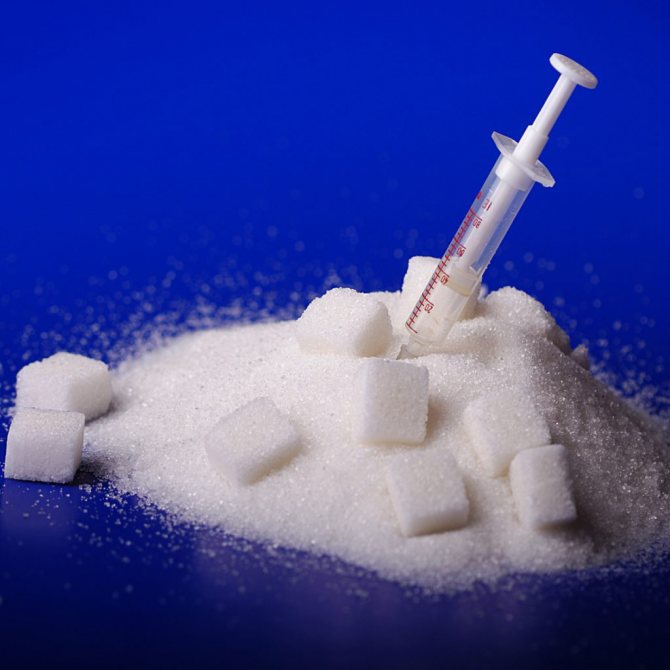Psychologists are very often faced with the problem of food addiction. When the question arises of how to give up sweet and starchy foods, the psychology of weight loss will help you find a way out. You can cope with addiction, overeating, being overweight if you find the right approach and determine the reasons for this behavior.
Why are sweet and starchy foods harmful?
The dangers of refined sugar and starchy foods have long been talked about. Someone calls sugar a poison and attributes many dangerous properties to it. First of all, you should clarify that sugar is found in almost all food products. Fructose, glucose is also considered sugar, so it is not necessary to follow too strict diets, this will cause serious exhaustion and even greater psychological problems.
Large amounts of refined sugar (chocolate, ice cream, cookies and other sweets), as well as bakery products, cakes, etc., bring great damage to the body. However, it is they who often become the main addiction for people with psychological problems. problems.
It is necessary to clarify how all of the above is detrimental to human health:
- Sugar promotes the leaching of useful minerals from the body, therefore, it often leads to cavities and cavities, as well as increased bone fragility.
- Uncontrolled consumption of sweets has long been known to cause skin problems. Pimples, acne, comedones appear, oiliness increases. In addition, the destruction of collagen, which is necessary to maintain the youth and elasticity of the dermis, is accelerated.
- In both women and men, sweets can trigger thrush (candidiasis). Candida is always present in the body, but yeast, which is contained in flour and sweets, creates a favorable environment for its reproduction.
- There is an opinion that the abundance of sugar also negatively affects the genital area, as it provokes various hormonal disorders.
- Of course, a consequence such as being overweight should not be forgotten. It leads to complex psychological and physical problems and chronic diseases.
- People with a sweet tooth often face excessive fatigue. Sweets give strength and energy for a very short time, and then the opposite effect appears. The person feels tired and overwhelmed.
There is no benefit from such a meal. However, this does not mean that you should completely abandon everything that contains sugar and flour. It will be enough to ditch simple carbohydrates and foods that do more harm than good.
When it comes to how to stop eating sweets, psychology does not offer a universal answer. There are many reasons for addiction and overeating. Therefore, the solution to the problem is selected individually.
The glycemic index is an indicator of the usefulness of food.
When exposed to heat, products change their properties. This happens not only in factories. In everyday life, we consume few products in their natural form, we mainly prepare them: we cook, steam, fry, stew. As a result, fiber evaporates and sugar and starch levels rise as the body will absorb processed fruits and vegetables faster.
To keep sugar in the norm, check the glycemic index of foods (hereinafter referred to as GI). It is described in the video:
Symptoms of food addiction.
Many people simply do not realize that they have problems. Sugar and baked goods are considered normal foods found in almost everyone’s diet. However, food addiction can be identified by the following signs:
- without sweets, there is no feeling of satiety;
- in the absence of sweets, drowsiness appears, a feeling of fatigue, apathy;
- it is impossible to refuse chocolate or cake even during a diet;
- a person cannot stop while eating muffins or sweets;
- the addict does not give up sweets even though there are obvious problems with weight, digestion, and general health;
- there is a feeling of fear, discomfort, nervousness, if there is nothing sweet in the house;
- Any image or mention of treats makes you want to eat.
The main characteristic of an addict is to eat food not only when hunger appears. The feeling of hunger is familiar to everyone: bubbling in the stomach, saliva, a feeling of emptiness in the stomach. However, the food addict eats even when his stomach is full and his brain does not indicate hunger. This means that food is consumed in order to obtain psychological satisfaction, distraction or to experience positive emotions.
Reasons for addiction
To independently understand the causes of overeating and food addiction, not everyone can admit the presence of a problem. It is advisable to be examined by doctors and visit a psychologist to find out why the addiction to food has arisen. Experts say that candy is practically a drug. After giving up refined sugar, real withdrawal may appear.
The reasons for addiction to sweets and starchy foods are usually psychological, but there are also physiological ones. So it is easier to become a victim of food addiction if there are metabolic disorders, hormonal disturbances. It is not the least role that a hereditary predisposition to this addiction plays. With hypotension, the brain lacks glucose, which is why a person has an irresistible craving for sweets.
The psychological reasons for addiction can be the following:
- the habit from childhood of encouraging oneself to be sweet and tasty, instilled by parents;
- the habit of distracting yourself from bad thoughts and emotions with food;
- uncontrolled food cravings during stress and intense arousal;
- a long stay on a diet and, as a result, a strong desire for what is not allowed.
The essence of addiction is that sweet and starchy foods are no longer perceived as food, but rather as a solution to problems or a source of joy. In a person’s mind, food becomes a drug, without which life seems dull and dull. In fact, refined sugar and baked goods don’t add confidence or comfort. This is only a temporary and harmful replacement for more effective methods of solving the problem. Therefore, with such an addiction, it is recommended to contact a specialist.
Of course, you can run around the kitchen in a panic and throw out all the products that contain sugar. And you can act more rationally. Why deny yourself a treat when you can simply replace this product with a healthier sweetener?
These include, for example, maple syrup and stevia. We will talk about each of them in more detail.
Maple syrup
Maple syrup is popular on the hill and is a natural substitute for sugar. In appearance and slimy consistency, it resembles fresh honey. If you’ve made a conscious decision to skip the sugar altogether, you can add maple syrup to tea or coffee, or use it as a sweet addition to desserts. It can also be used in vegetable garnishes and meat dishes to add a sweet flavor.
The benefits of a substitute:
- natural sweet product rich in vitamin B and phosphorus, calcium, zinc and potassium;
- maple syrup contains a rare thiamine, vital for pregnant and lactating women, as well as people who work hard physically;
- The sweet syrup helps to strengthen the heart muscle and immunity.
The downside to maple syrup is that it is consumed relatively quickly, but it costs a lot.
Stevia
Herbal honey powder is considered a safe and natural substitute for sugar. It is impressive that the sweetness is 25 times sweeter than the usual refined sugar. Therefore, despite the higher cost, the stevia sweetener is consumed very economically. In stores, the sweetener is sold not only in powder form, but also dried honey herb leaves, which can be used to make homemade sweet cakes or add to refreshing cocktails.
Unlike other substitutes, stevia can be consumed by obese people, as well as diabetics who cannot imagine their lives without sweets. The natural product contains practically no calories and, in addition, it is very resistant to heat. Therefore, it can be safely added to baked goods.
The use of honey herb lies in the fact that the sweet powder has a beneficial effect on the functioning of the pancreas and liver. And adding stevia instead of sugar to baby dishes can minimize the risk of developing an allergic reaction and diathesis.
Regular moderate consumption of this sugar substitute has a positive effect on a person’s physical and mental condition.

Dear
Contrary to all claims that honey is a safe sweet, this is not entirely true. Beekeeping products, like common sugar, can whet your appetite and increase blood glucose levels. Also, do not forget that it belongs to the category of potential allergens, and the glycemic index of honey is the same as that of a regular refined product. Therefore, people with obesity and diabetes should stop.
Honey, loved by many, cannot be added to baked goods and hot tea, because during heat treatment it begins to release carcinogens.
Fructose
There is also a misconception that fructose is much healthier than sugar, both for form and for overall health. This compound has a much lower glycemic index, which is why people with diabetes often replace it with a familiar product. However, doctors have already raised the alarm, as it adversely affects the functioning of the pancreas.
An interesting fact is that the sugar in the fruit is processed in the liver, so its excess is quickly converted into fatty deposits. So if you decide to ditch sugar and instead take fructose for weight loss, your business is doomed.
Synthetic sweeteners
Separately, it should be said about artificial sweeteners. In addition to the side effects of dizziness and stomach pain, the white granules or tablets are very high in calories. So if you hope to get rid of 2-3 kilos with their help, then it is better to reject such a decision, rather than playing sports and following the recommendations of nutritionists.
If using powdered or tablet sugar substitutes is convenient for you, take a look at FitParad.
Synthetic sweet compounds are not absorbed by the human body and are also toxic to it.

How to give up sweets and starchy foods: the psychology of traditional and submissive motivation
Many are looking for an answer in psychology, how to stop eating sweet and starchy foods for good. And this is the correct approach, as most of the time psychological reasons lead to food addiction and compulsive eating.



